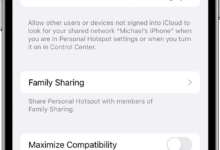Tips for Choosing the Right Phone for Traveling
Contents
- 1 Hello, Readers!
- 2 Introduction
- 3 Essential Factors to Consider
- 4 Strengths and Weaknesses of Different Phone Options
- 5 Table of Comparison
- 6 FAQs
- 6.1 1. What is the most important factor to consider when choosing a phone for traveling?
- 6.2 2. Which operating system is better for travelers?
- 6.3 3. How much storage space do I need for travel?
- 6.4 4. Is it worth getting a satellite phone for traveling?
- 6.5 5. What is the best way to save money on a phone for traveling?
- 6.6 6. How can I protect my phone while traveling?
- 6.7 7. What are some essential apps to download for travel?
- 7 Conclusion
- 8 Disclaimer
Hello, Readers!
Traveling is one of the most enriching experiences one can have. It opens up new worlds, introduces us to different cultures, and creates memories that will last a lifetime. But what’s a traveler without a phone? In today’s digital age, our phones have become essential tools for staying connected, navigating unfamiliar places, and capturing precious moments. Choosing the right phone for traveling can make all the difference between a seamless and memorable trip or a frustrating and inconvenient one. In this article, we’ll delve into the essential factors to consider when selecting the perfect travel companion.
Introduction
When embarking on a journey, your phone becomes more than just a communication device; it transforms into a lifeline, a guide, and a source of entertainment. The right phone can enhance your travel experience by providing reliable connectivity, ensuring easy navigation, and capturing stunning memories. Conversely, an ill-suited phone can hinder your travels, leaving you disconnected, lost, and frustrated. To avoid such pitfalls, it’s crucial to carefully consider your needs and preferences before making a choice.
In this comprehensive guide, we’ll explore the key aspects to keep in mind when selecting a phone for traveling. From battery life and connectivity to camera quality and durability, we’ll cover everything you need to know to make an informed decision. Whether you’re a seasoned globetrotter or a first-time traveler, this article will equip you with the knowledge to choose the perfect phone that will elevate your travel adventures.
Essential Factors to Consider
1. Battery Life
Long hours of exploration and frequent usage can quickly drain your phone’s battery. A phone with exceptional battery life is essential to ensure you stay connected and powered throughout your trip. Look for phones with batteries that can last at least 12 hours of continuous use, allowing you to stay worry-free even on extended excursions.
2. Connectivity
Reliable connectivity is paramount for staying in touch with loved ones, accessing maps and travel apps, and sharing your experiences online. Choose a phone that supports the latest network standards, such as 5G or 4G LTE, to ensure fast and stable internet speeds. Additionally, consider phones with dual SIM capabilities, allowing you to use local SIM cards for cost-effective data plans and seamless connectivity abroad.
3. Camera Quality
Capturing the beauty of your travels is a must. A phone with a high-quality camera will enable you to preserve memories and share them with others. Look for phones with multiple lenses, such as wide-angle, telephoto, and macro, to capture a variety of shots from stunning landscapes to close-up details. Additionally, consider phones with features like optical image stabilization and large sensors for exceptional image quality, even in low-light conditions.
4. Durability
Traveling often involves rough handling and exposure to various elements. Choose a phone that is built to withstand the rigors of travel. Look for phones with durable construction, such as metal frames and Gorilla Glass displays, which can protect against scratches, drops, and impacts. Additionally, consider phones with water and dust resistance ratings to ensure they can withstand rain, spills, or accidental drops in water.
5. Storage Capacity
With all the photos, videos, and apps you’ll be using while traveling, ample storage space is essential. Choose a phone with sufficient storage capacity to accommodate your needs. Consider phones with at least 128GB of internal storage, or opt for models that support expandable storage via microSD cards, allowing you to easily add more space as needed.
6. Operating System
The operating system (OS) of your phone plays a significant role in your user experience. Choose an OS that is user-friendly, intuitive, and offers a wide range of features and apps. Consider both Android and iOS, each with its own strengths and advantages. Android offers greater customization and flexibility, while iOS is known for its stability and ease of use.
7. Price and Availability
While it’s important to consider your needs and preferences, budget and availability also play a crucial role in your decision. Set a realistic budget that aligns with your financial constraints and explore different phone options within that range. Additionally, check the availability of the phone in your region and with your preferred carrier to ensure you can purchase and use it seamlessly during your travels.
Strengths and Weaknesses of Different Phone Options
1. Smartphones
Smartphones are the most versatile and feature-rich option for travelers. They offer a wide range of functionality, including high-quality cameras, GPS navigation, access to apps, and internet connectivity. However, smartphones can be more expensive and may have shorter battery life compared to other options.
2. Feature Phones
Feature phones are a more affordable and simpler alternative to smartphones. They offer basic functionality, such as calling, texting, and limited internet access. Feature phones have longer battery life but lack the versatility and advanced features of smartphones.
3. Satellite Phones
Satellite phones are specifically designed for communication in remote areas where cellular networks are unavailable. They provide reliable connectivity but can be expensive and bulky. Satellite phones are primarily used by adventurers, explorers, and professionals working in remote locations.
Table of Comparison
| Feature | Smartphone | Feature Phone | Satellite Phone |
|---|---|---|---|
| Functionality | Versatile, wide range of features | Basic functionality | Communication in remote areas |
| Cost | More expensive | Affordable | Expensive |
| Battery Life | Shorter | Longer | Varies |
| Connectivity | Cellular networks, Wi-Fi | Limited internet access | Satellite communication |
| Use Cases | General travel, urban areas | Budget travel, simple communication | Remote expeditions, emergencies |
FAQs
1. What is the most important factor to consider when choosing a phone for traveling?
Battery life, connectivity, and camera quality are among the most important factors to consider when choosing a phone for traveling.
2. Which operating system is better for travelers?
Both Android and iOS have their advantages. Android offers greater customization and flexibility, while iOS is known for its stability and ease of use.
3. How much storage space do I need for travel?
It depends on the length of your trip and how many photos and videos you plan to take. A minimum of 128GB is recommended, with expandable storage options being a valuable feature.
4. Is it worth getting a satellite phone for traveling?
Satellite phones are only necessary if you plan to travel to remote areas where cellular networks are unavailable. They are expensive and bulky, so they are not suitable for general travel.
5. What is the best way to save money on a phone for traveling?
Consider buying a used phone or choosing a mid-range phone with good value for money. Look for deals, discounts, and carrier promotions to get the best price.
6. How can I protect my phone while traveling?
Use a durable phone case and screen protector. Keep your phone in a secure location and be aware of your surroundings to avoid theft.
7. What are some essential apps to download for travel?
Navigation apps, language translation apps, currency converters, and travel planning apps are all valuable tools for travelers.
Conclusion
Choosing the right phone for traveling is a decision that can significantly enhance your journey. By considering the factors discussed in this article, you can select a phone that meets your specific needs and preferences. Whether you prioritize battery life, connectivity, camera quality, or durability, there is a phone that will be your perfect travel companion.
Remember to research thoroughly, read reviews, and compare different options before making a choice. By taking the time to find the best phone for your needs, you can ensure that your phone empowers your travels and helps you create memories that will last a lifetime.
So, embrace the adventure, explore the world, and let your phone be your guide, your camera, and your connection to the world.
Disclaimer
The information provided in this article is solely for informational purposes and does not constitute professional advice. It is recommended to consult with a qualified expert before making any decisions related to choosing a phone for traveling.






